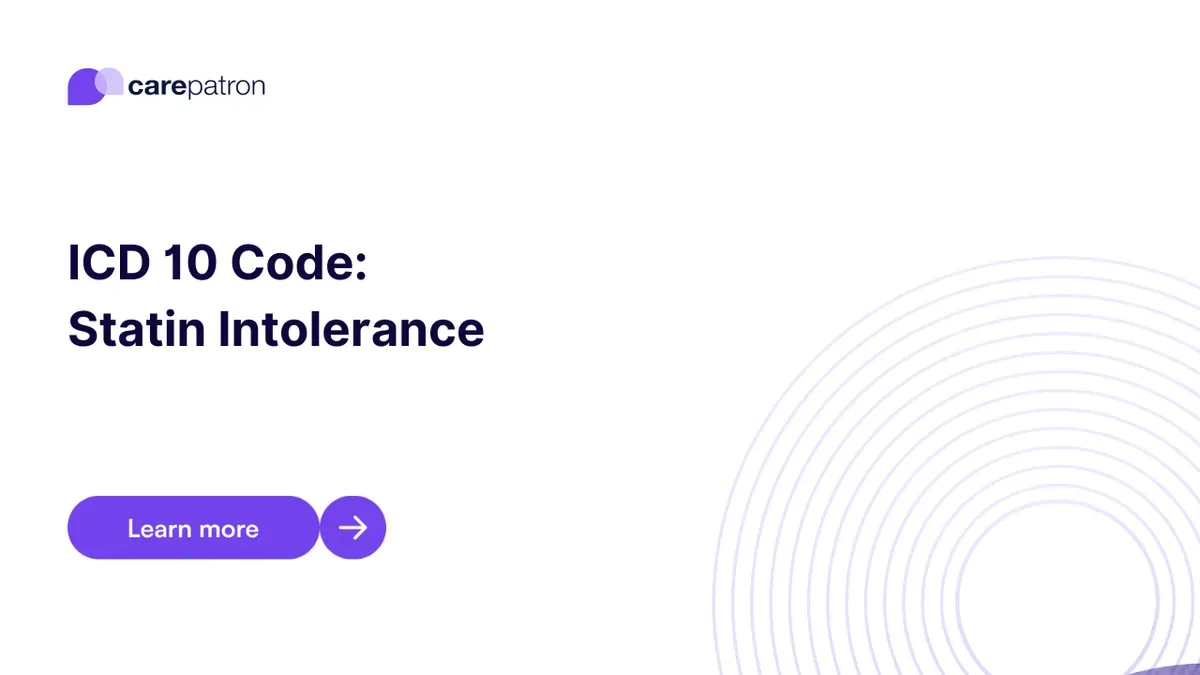
Statin Intolerance ICD-10-CM Codes
Discover the ICD-10-CM codes for Statin Intolerance. In this thorough reference, you will find thorough information about the ICD Codes for Statin Intolerance.
Use Code
Commonly asked questions
Common symptoms include muscle pain, weakness, fatigue, gastrointestinal discomfort, and liver enzyme abnormalities.
If a patient experiences statin intolerance, healthcare providers can explore alternative medications, adjust dosage, or recommend lifestyle changes to manage cholesterol levels.
Statin intolerance occurs in a subset of patients and can vary in severity. It's essential to communicate any adverse effects to a healthcare provider before making changes to medication.
EHR and practice management software
Get started for free
*No credit card required
Free
$0/usd
Unlimited clients
Telehealth
1GB of storage
Client portal text
Automated billing and online payments
